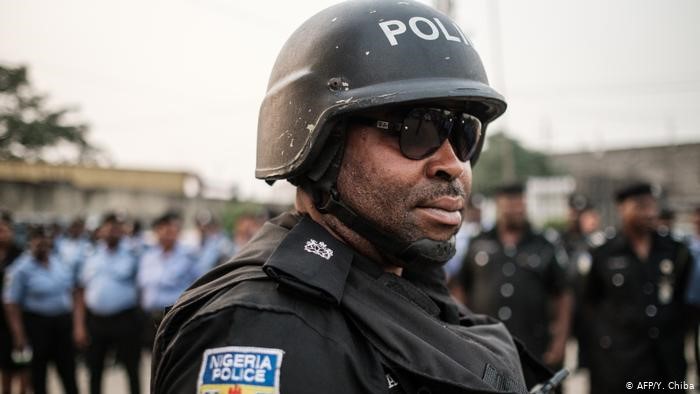Police, Thugs Greatest Threats To Press Freedom In Nigeria ㅡ Report

The Premium Times Centre for Investigative Journalism (PTCIJ) has identified police officers and thugs as the greatest violators of press freedom in Nigeria.
It made this observation in its State of Press Freedom Report: Trends and Reflections, released on Thursday, based on information gathered from the Press Attack Tracker.
The tracker, which is a civic technology tool that documents attacks against journalists and media organisations, has recorded over 300 cases in the past five years. The data collated include the date, type, location, and perpetrators of attacks.
Data from 2018 to 2020 revealed that, with 24.5 per cent, the police were the “chief oppressors of journalists and media organisations”, PTCIJ programme manager, Adenike Aloba, noted in her analysis.
Following closely are thugs who went after journalists in 17.2 per cent of the cases, political thugs (15.8 per cent), political figures (15.8 per cent), civilians (14.8 per cent), Department of State Services (DSS) and Special Anti-Robbery Squad, security aides, unidentified people, terrorists, and finally the presidency.
“The fact that the list is filled with state actors is a pointer to the fact that the state wittingly or unwittingly sanctions these attacks against journalists,” Aloba said.
“The presence and volume of attacks by political figures is indicative of insufficient separation of state from politics with state actors using their position to advance their political ambition.”
She added that even though the presidency is identified as a violator in 0.7 per cent of the cases, “as the custodian of the constitution from where the media derives its duties and protection, it shares a huge percentage of the blame that these attacks against the press continue to happen with impunity and are perpetrated mostly by state actors”.
According to the Press Attack Tracker, nearly half (46.8 per cent) of all attacks recorded between 2018 and 2019 were physical and 24.7 per cent involved arrests. The other forms of attacks included the seizure and damage of equipment, threats, denial of access, and harassment.
Most attacks against the press in the period took place in the North Central, followed by the South West and South-South. The regions with the least number of attacks were North East, North West, and South East.
Introducing the report, PTCIJ’s Programme Director, Oluwatosin Alagbe, stressed that freedom of the press is needed in every democracy because it allows the people to be informed about their rights and makes the government accountable.
“A free press allows for difficult and challenging questions to be asked and answered. This can be seen as destabilising, but the accountability that comes with the answered questions, in the long run, is worth it,” she said.
In support of this argument, she quoted section 22 of the country’s constitution which guarantees the freedom of the press to “always uphold the responsibility and accountability of the government to the people”.
In spite of this legal provision, journalism, Alagbe said, remained an endangered profession in Nigeria.
“Indeed, look no far for the best illustration of this than in the recent #EndSARS protests in the country to see how state actors suffocate the press with impunity even while journalists are assaulted and media organisations have been slammed with crippling fines for the duty of merely covering the protests,” said the PTCIJ boss.
“Journalists and activists have been spied on, threatened, arbitrarily arrested, forcedly kidnapped and unlawfully detained. Worsening these threats was the introduction of two prohibitive legislative proposals – the Hate Speech and the Social Media Bills, which until recently were under consideration in the National Assembly.”
Support Our Journalism
There are millions of ordinary people affected by conflict in Africa whose stories are missing in the mainstream media. HumAngle is determined to tell those challenging and under-reported stories, hoping that the people impacted by these conflicts will find the safety and security they deserve.
To ensure that we continue to provide public service coverage, we have a small favour to ask you. We want you to be part of our journalistic endeavour by contributing a token to us.
Your donation will further promote a robust, free, and independent media.
Donate HereStay Closer To The Stories That Matter




